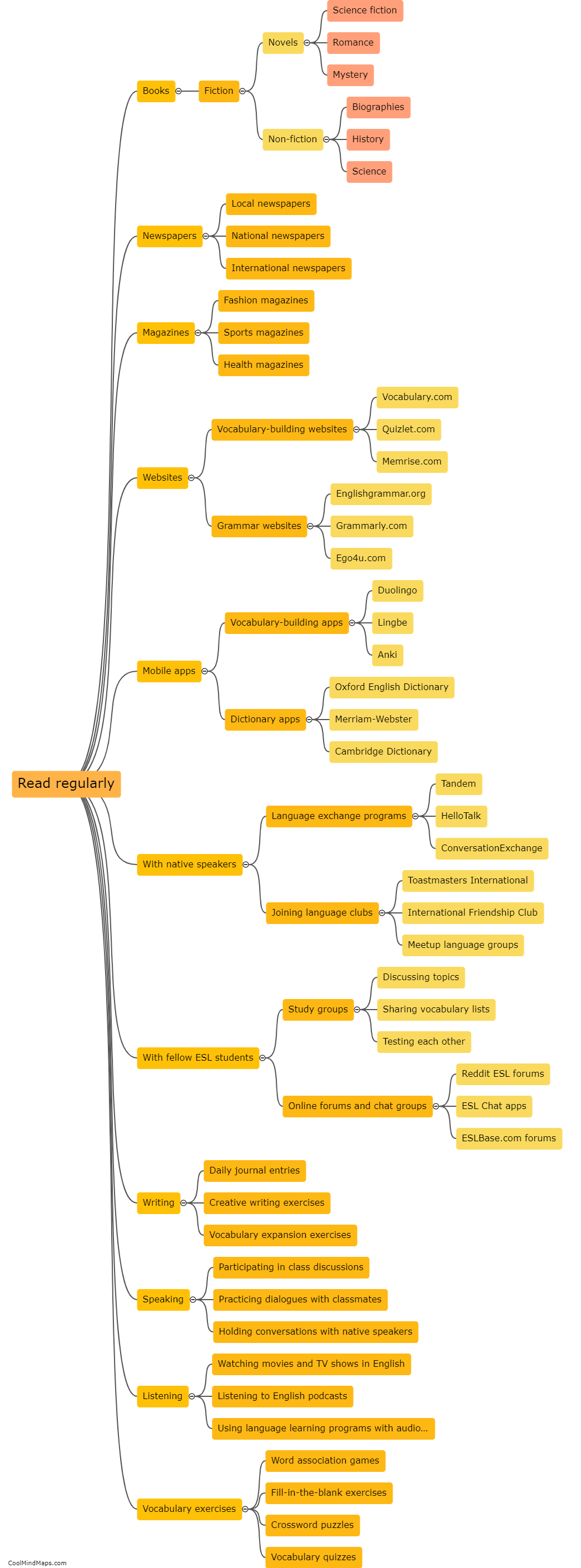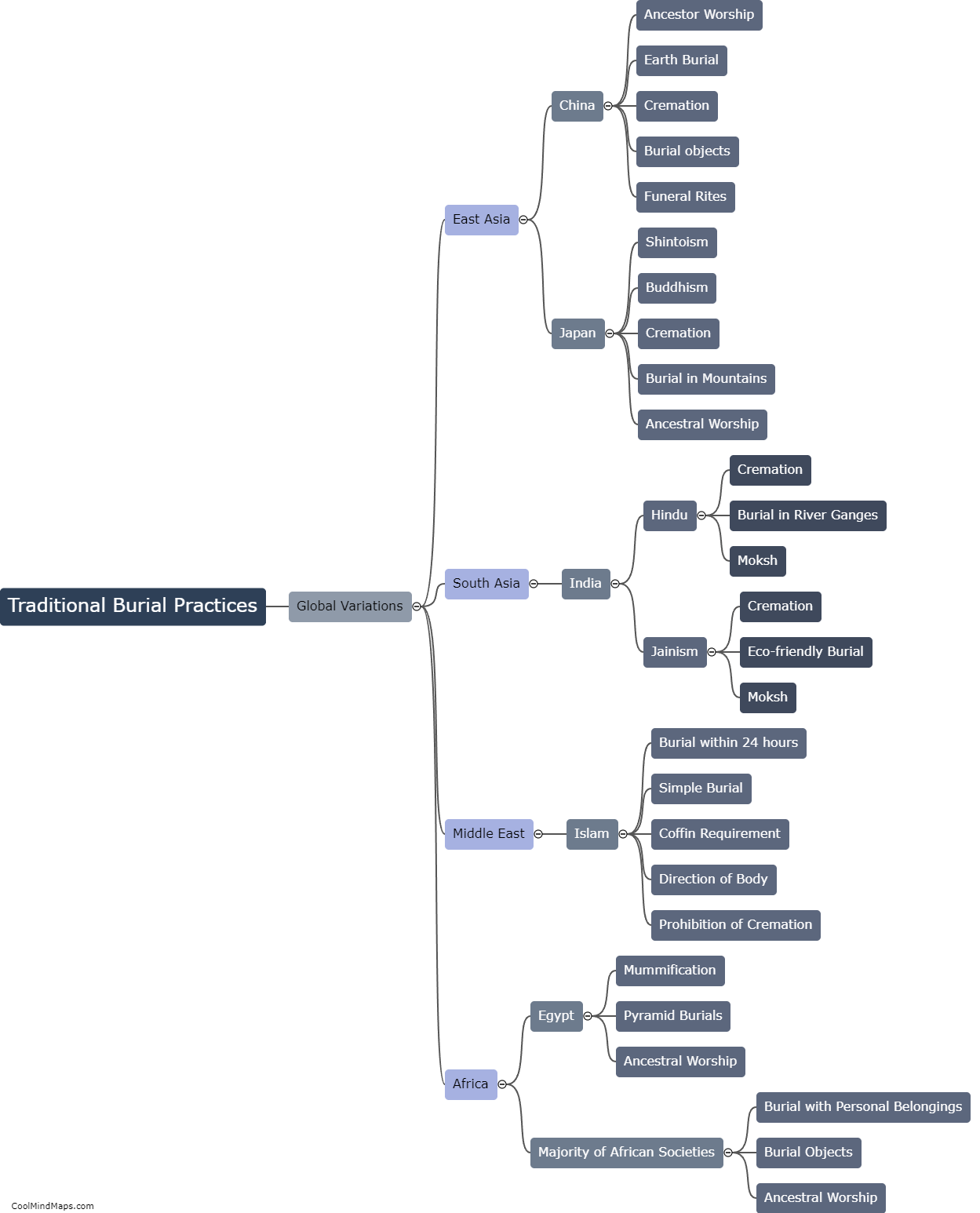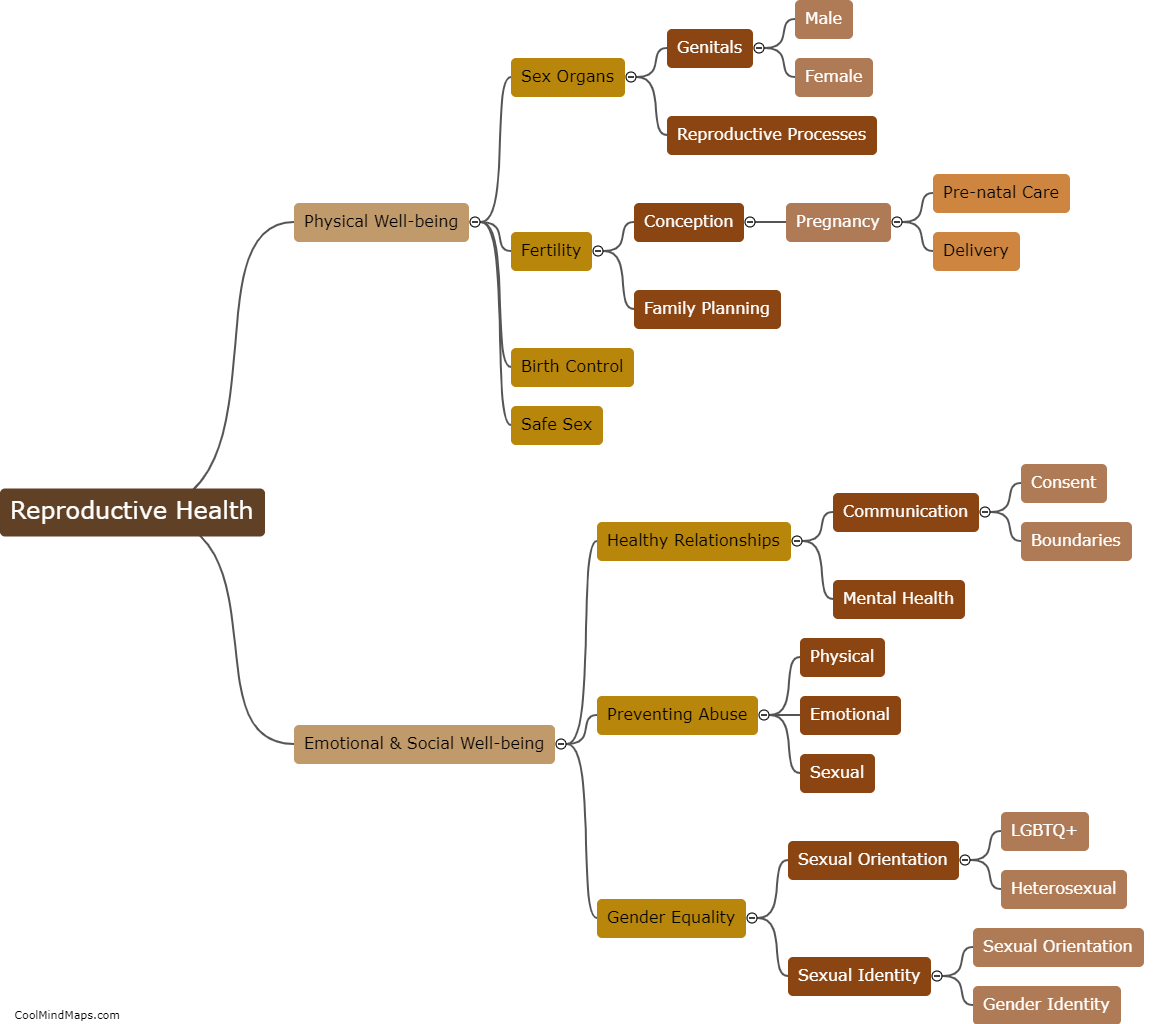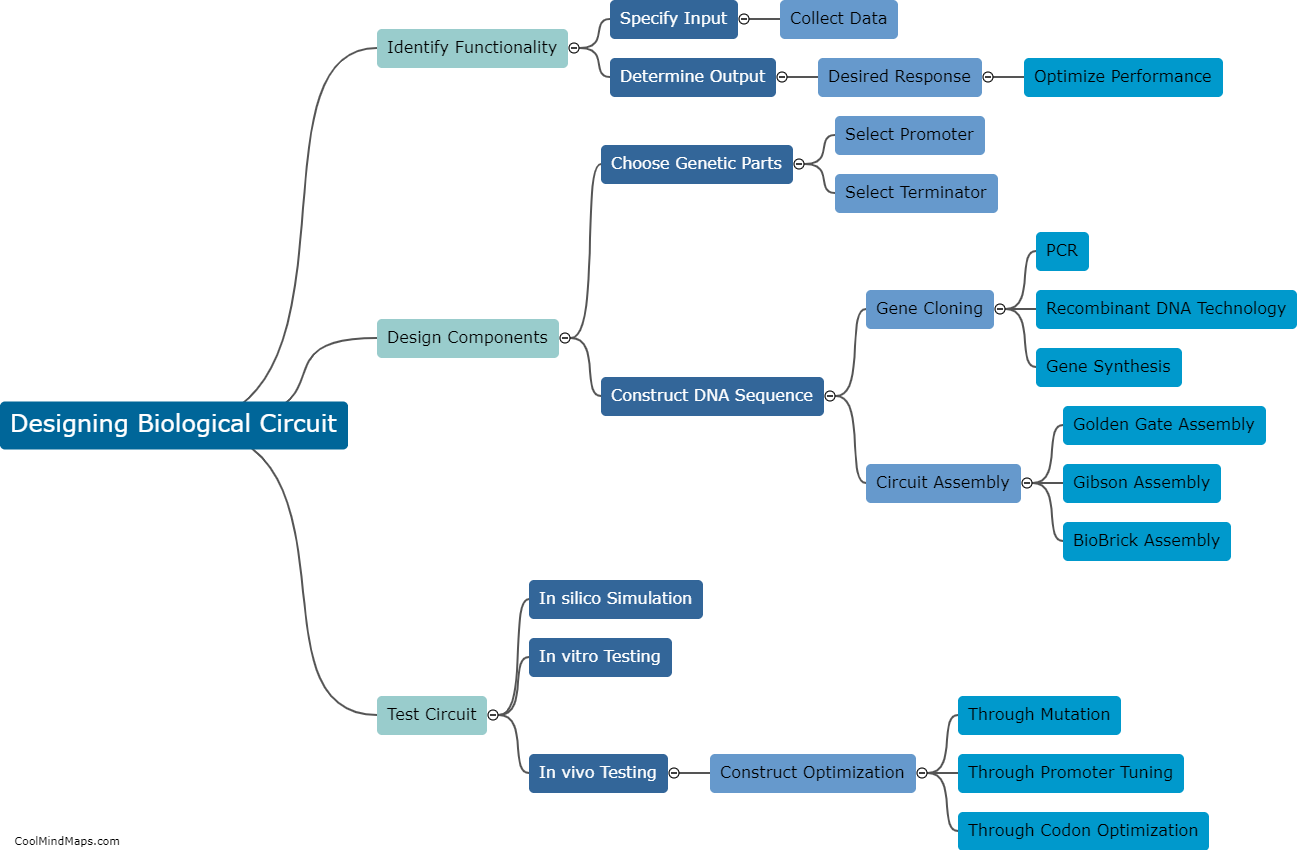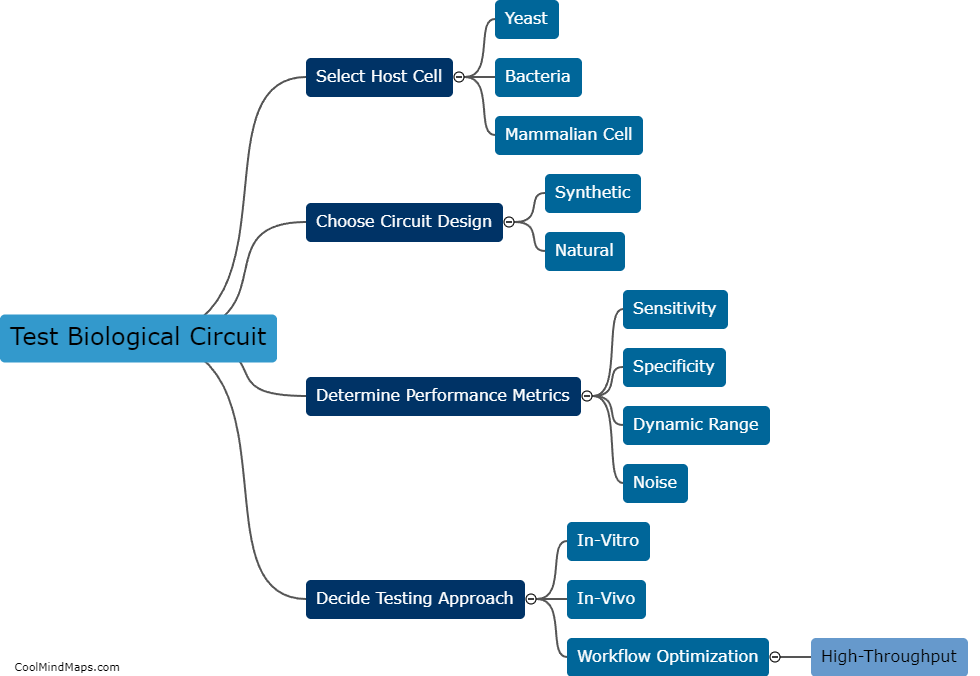What is a biological circuit?
A biological circuit is a system of interacting genes or proteins that generate specific cellular behaviors. These circuits are similar to electrical circuits in that they contain genes or proteins that act as 'switches' to control the flow of information and maintain a precise balance of biological processes. Biological circuits play a critical role in regulating complex biological processes in cells, such as cell differentiation, cell signaling, and gene regulation. They often involve a combination of positive and negative feedback loops that allow cells to respond to different signals and adapt to changes in their environment. Understanding how biological circuits work is essential to the development of new treatments for diseases, as well as the creation of synthetic biological systems.

This mind map was published on 23 June 2023 and has been viewed 114 times.
